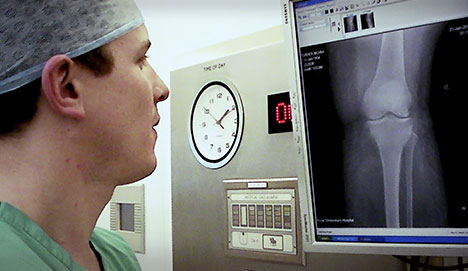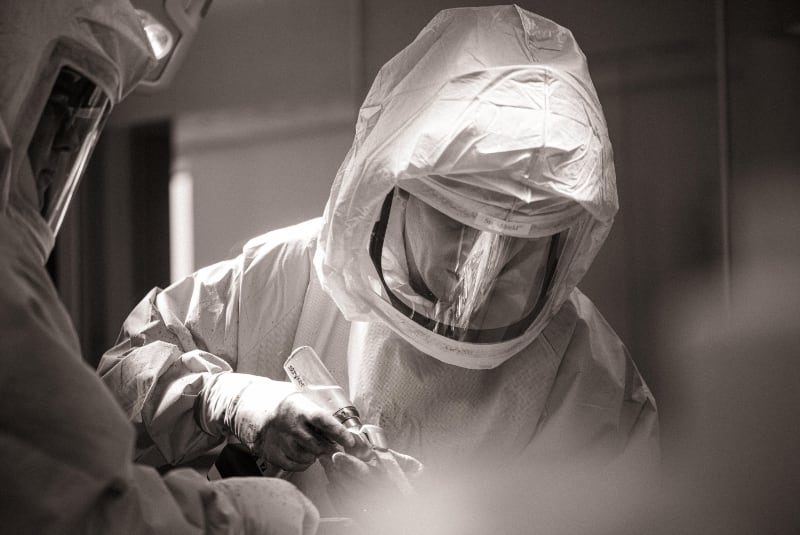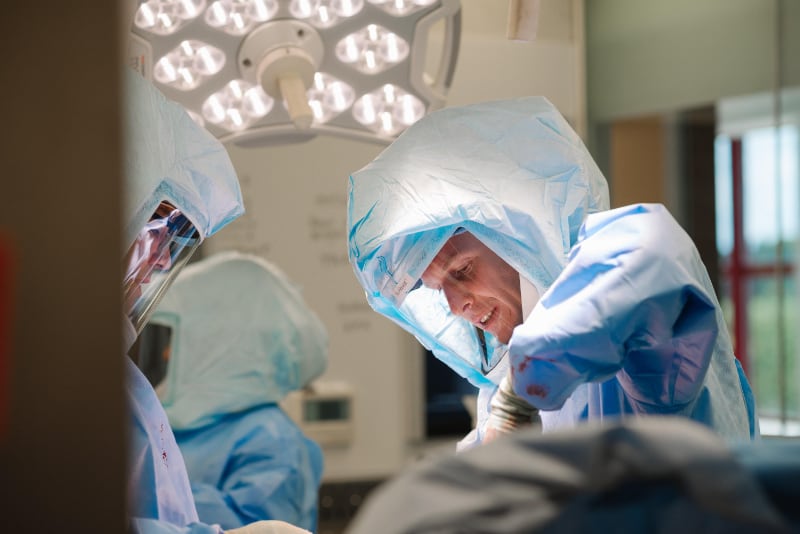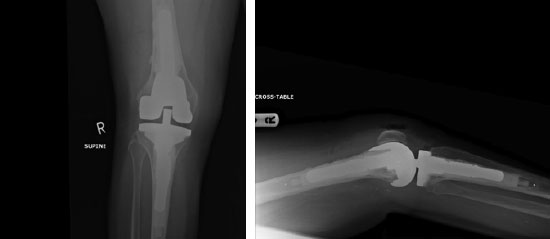Revision Total Knee Replacement
If you have further questions about revision total knee replacement then please feel free to contact us
here.
Alternatively you can book an appointment to see us below.





Figure 1(a) and (b): X-ray of knee following revision total knee replacement showing more complex components
Assuming a total knee replacement (TKR) has been performed well, 95% will last over 15 years. With time, however, they may fail. The most common cause of failure of a knee replacement is wear and loosening of the components. Plastic wear debris within the knee causes the body to mount an inflammatory response which results in erosion of the bone around the knee replacement.
The second commonest cause of failure is infection. This can happen early (within the first few weeks) or late (after the first month) or may happen many years following the original TKR as a result of an infection spreading to the knee joint from elsewhere e.g. a dental, urinary or chest infection. Sometimes a TKR can become infected as a result of an ulcer or skin infection on the same limb. When component loosening and infection occur, revision TKR is very often required.
Other common reasons for requiring a revision TKR include knee problems such as instability, stiffness, continuing pain and component malposition. Assuming that a clear cause for the problem or failure is found, there is a high chance of success; if a definite cause has not been found, revision surgery should not be undertaken.
The results for revision TKR are not as good as for primary TKR. In addition, the incidence of complications, as with any type of "redo" surgery are a little higher.
If you have a TKR that is causing problems you will need a thorough assessment. This will involve a comprehensive history and examination followed by x-rays to image the knee joint. You will also require blood tests to rule out infection and sometimes may require a minor procedure to attempt to drain fluid from the knee. In addition, you may require a CT scan and occasionally an examination under anaesthetic or keyhole surgery to further investigate the problem.
Revision TKR can be challenging both for the patient and the surgeon. It is complex surgery which may take 2-4 hours to undertake. It requires skill, knowledge and understanding in techniques to remove old implants but also to reimplant new, more complex revision implants (see figure 1). This type of surgery is best performed by expert surgeons in specialist units.